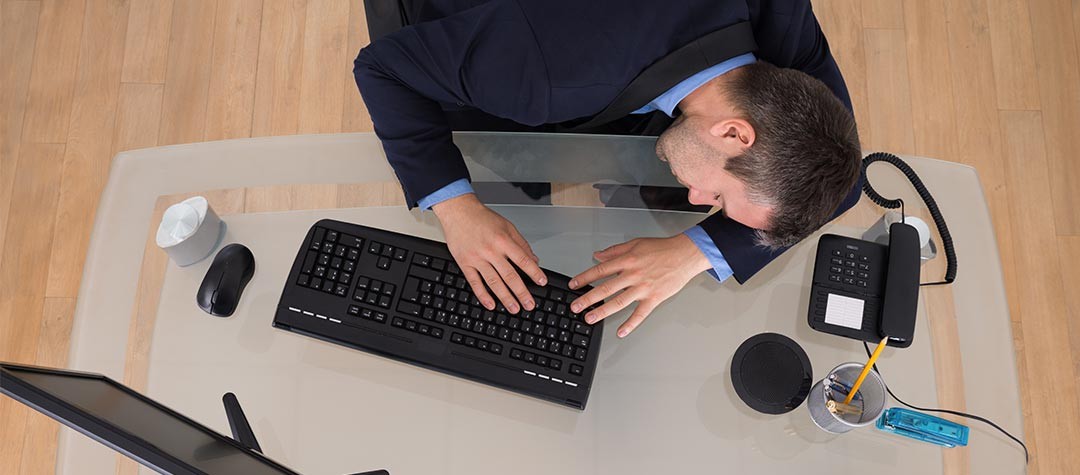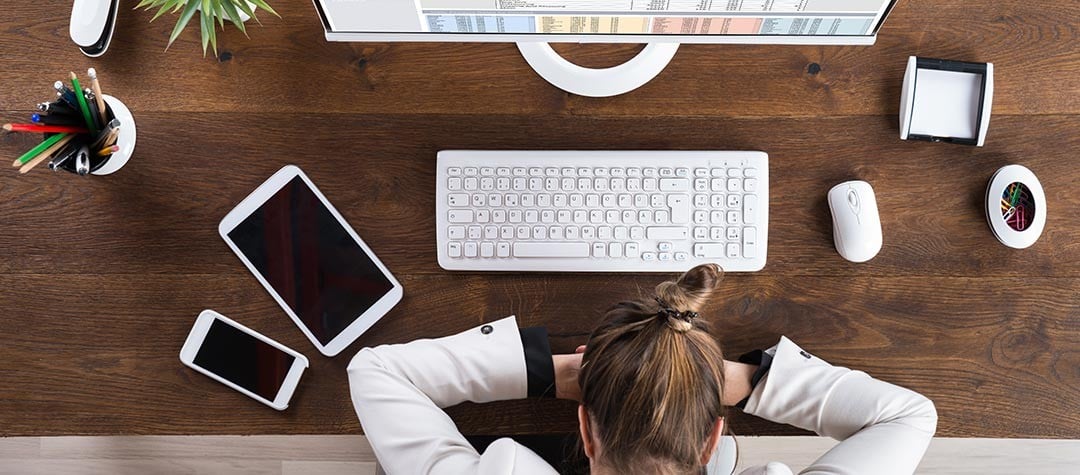Many people would be surprised to learn that their job could actually be damaging their health - here’s a few reasons why.
It’s Monday morning again and as we stumble out of our comfy beds, we have that sneaking suspicion that somehow this isn’t good for us. It turns out that our suspicions are right too - our jobs can be bad for our health. And in this article we tell you just why long hours, boring days and stressful tasks can have a real negative effect on your health.
1. The emails
When emails became part of our working day, we celebrated the end of copious letter-writing, communication problems and only half-legible faxes. Yet research suggests the birth of emails was not as good as we first thought, finding people who check that inbox regularly are in fact more stressed and less focused than colleagues without such access.
Try to avoid constantly checking emails, maybe even logging out of your account on your smartphone or laptop outside of office hours.
2. Death by office chair
We can’t all be active while typing up our paperwork, but sitting down at your desk could be killing you all the same. Studies suggest that those adults who sit in a chair for 11 hours a day have a 40 per cent increased risk of dying than workers who only sit down for an average of four hours a day.
Stand up desks are increasingly becoming popular, and even just placing the printer across the room to encourage you to get up and walk around can make a big difference.
3. Boredom makes you sick
If the very thought of work makes you want to yawn, pay attention - boredom can make you sick. University research found continuously-bored workers turn to coffee, smoking, alcohol and chocolate in an effort to try and perk themselves up.
As well as picking up bad habits , other research suggests workers who complain of chronic boredom are two and half times more likely to die before the expected age due to either a heart attack or a stroke.
If you find yourself bored during your work day there are a few quick things you can try. Varying the tasks that you do can be a good way to prevent boredom, alternatively, try to spend time discussing things with colleagues, this will not only alleviate boredom, but will help you to get different perspectives on your work!
4. To work or not to work?
Few of us would choose unemployment over paid work, but it would seem that our mental health may benefit from not working rather than a job we hate. Australian university research found that those who felt like they had no control at work, were low-paid or received little recognition for their efforts had poorer mental health than those out of work who later moved into a better job.
Mental health is really important, and if your job is negatively affecting your mental health it might be worth considering whether it’s the right role for you.
5. Out of office?
Working outside work hours is a curse. We clock off, leave the office, battle with thousands of other commuters to get home, and then - safely inside our front doors – up pops a new work email. The distinction between office hours and downtime has never been so blurred, and it’s having a negative effect on our health. Studies have found that workers who check their emails at home after work have higher levels of stress and poorer concentration.
It’s really important to take a proper break from work, as this leaves you refreshed and better able to deal with the demand of the job. Responding to an email the next day when you’re fresh and wide awake will be much better than a quick response when you’re tired.
6. Longer hours make you smoke
Despite all those predictions in the past, it appears that - wherever you are in the world - you’re facing an increase in the amount of time you spend at the office. Those increased hours are having a major impact on our health too, with studies suggesting those longer hours can lead to you smoking more, exercising less, and seeing the doctor less frequently.
Smoking may seem like a quick fix to reduce stress, but it will lead to longer term problems. Try to get into a routine that involves exercise at least once or twice a week and when your stress and craving a cigarette break, maybe go for some fresh air instead.
7. Night owl shifts
We all know about shift workers and their odd sleep patterns. But while their night-owl ways seem harmless enough, it would seem that this unnatural sleep cycle is causing shift workers serious problems. People who work shifts are more likely to have type 2 diabetes, heart disease and cancer and women who work shifts are more likely to develop breast cancer than those who snooze their way through the nights.
While night shifts are unavoidable for many, try to keep them to a minimum and always make sure your get a full 8 hours sleep whatever time of day it is when you get into bed.
8. The promotion
A promotion at work is surely a reason to crack open the champagne and celebrate. Or is it? Well, according to studies, your promotion may not be quite as good as you originally thought. A heavier pay packet may have its perks, but the stress and extra hours associated with climbing that career ladder can lead to a decrease in workers’ mental health, by around 10 per cent.
Think carefully about applying for a promotion, weight up if the extra pay and benefits will be worth the extra responsibility and stress. Make sure you can fit the new role into your life before you take the plunge.
9. Desk jobs give you wrinkles
Many of us experience an afternoon slump, but if you have a desk job, do you ever actually slump down on to your desk ? If propping your head up on your hands sounds all too familiar, be aware that touching your face constantly in this way can lead to dry skin and premature ageing.
In this case, there is a remedy though - work on your core muscles and your back to build the strength. That way you can stop yourself leaning on your hands at work.
10. Anxiety
It’s a sad and shocking fact but one out of every nine workers in the workplace will develop some sort of anxiety disorder within their lifetime. A study in New Zealand found that one in seven women and one in 10 men with high levels of pressure at work had difficulty with their mental health, while half of the participants had some sort of anxiety disorder as a result of work.
If your job is making you feel anxious or stressed , remember it’s never worth compromising your health for work. Take a break – maybe a day or two but longer if necessary – recharge your batteries and try to employ techniques to minimise stress. If your workload is too heavy, discuss this with your colleagues and look at the best way to rebalance your work day so you can cope with the pressure.
Remember, if it all gets too much, it’s really worth considering whether you need to change roles, earning slightly less might be worth it if you’re preserving your mental health too!














